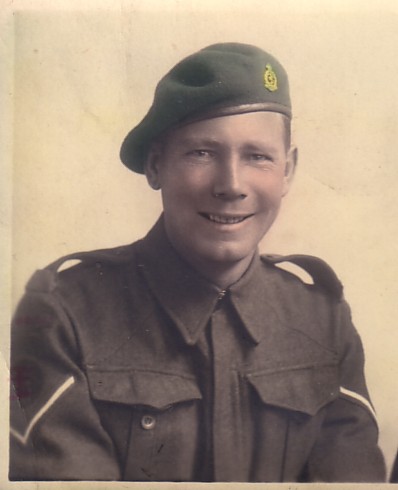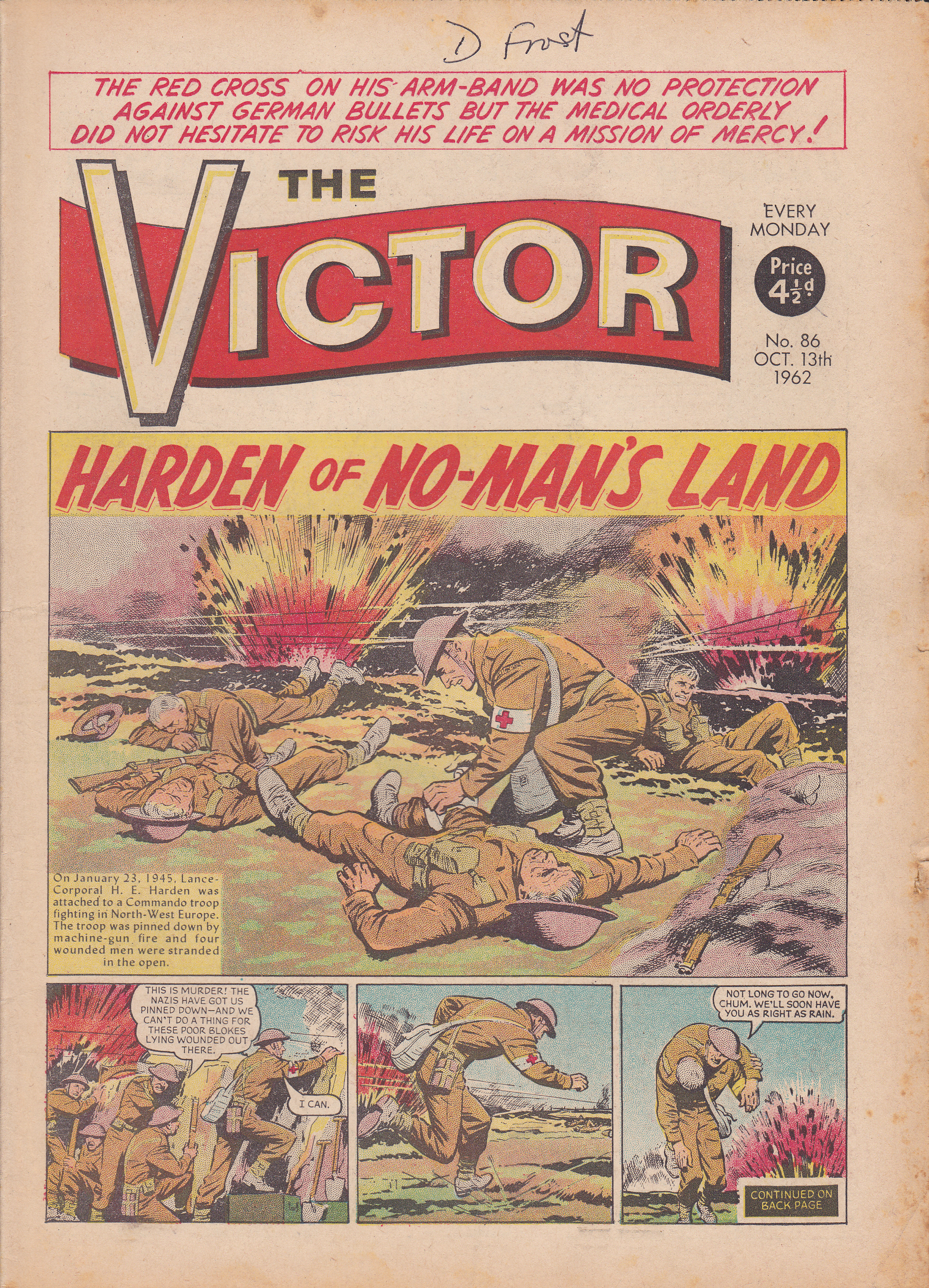I suppose it was you might call a bit of blitz serendipity. There I was in the leafy suburbs of London researching my next book about a Commando medic who won a posthumous Victoria Cross when suddenly I found myself transported back to familiar scenes: of rows of houses laid waste by a stick of bombs and families cowering in damp and dingy Anderson shelters while the ground shook beneath them. Only this time, the setting was not some terrace in Heigham or St Augustine’s, but a road I’d never seen or heard of before: Nightingale Road in Edmonton, north London. And while the site was strange to me, the story I heard recounted had an eerily recognisable ring to it.
It came about like this: I had just finished interviewing Derrick Cakebread, a former sniper in 45 Royal Marine Commando, about his wartime services with a particular focus on the subject of my book, Eric ‘Doc’ Harden VC, when we got side-tracked onto the blitz. Derrick had been living in Tottenham during the London Blitz and I wondered if he’d been bombed out. His wife, Muriel, was the first to answer: ‘No, he wasn’t, but I was!’
In moments, we were back to the dark days of 1941 when air raids on London were a grim feature of daily life. As the story began to unfold, I asked Muriel what kind of shelter she was in: an Anderson, a Morrison or a surface shelter. ‘None of them,’ she sheepishly smiled. ‘We had an Anderson shelter, but we were in the house that night the bombs fell around us.’ She showed me a brief account she’d written of her experiences:
‘…my mother, sister and I came out of the shelter to make a cup of tea during a lull in the raid. We were in the kitchen waiting for the kettle to boil when the bombing became very bad, so we went into the cupboard under the stairs to shelter. We heard bombs dropping nearby, and some of the windows broke and a couple of doors came off. Dad, who was on patrol, came in with an air-raid warden and found an unexploded bomb on the lawn in the back garden, about four yards from the house. It was one of a stick of bombs, of which one had hit a shelter in Clifford Road, and another had demolished the house diagonally opposite us in Nightingale Road, killing the two young children and their parents who lived there. We each packed three pairs of knickers and three vests and got out over the back fences as we couldn’t leave by the front of the house because of ambulances and other vehicles at the house that had been bombed…’
Just reading those lines took me straight back to passages in my own book about the Baedeker raids on Norwich. It brought it home to me just how universal an experience the blitz was. And right now, there seems no escaping it. Muriel’s story may have been by way of a diversion, but it won’t be too long before I’ll be recording some of ‘Doc’ Harden’s pre-Commando experiences, as a St John Ambulance man during the London blitz. A Kentish man from Northfleet, he grew up along the banks of the Thames, an area that suffered a great deal of bomb damage throughout the war. And before joining up, he was regularly called into action, driving an ambulance to scenes of destruction in Northfleet and beyond.
But, as I say, that’s a story to come. At the moment, I’m busy charting his battlefield services from Normandy to the Dutch-German border with the occasional ‘blitz interlude’ as BBC Look East, About Anglia and Norwich Arts Centre all prepare to mark the city’s Baedeker anniversary at the end of the month. I’ll keep you posted as to what’s happening and when in future blogs, but, meanwhile, it’s back to ‘Doc’ and a D-Day that would help remove the threat of air raids on our cities once and for all.
Get in touch: www.stephensnelling.com


